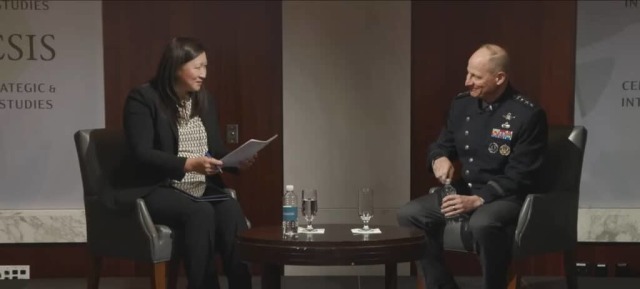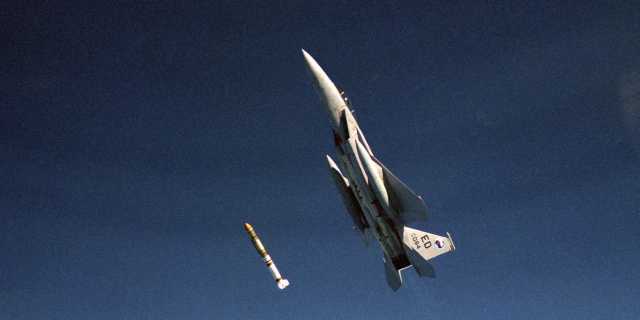Last year, there was a successful demonstration of the American strategy of operational replacement of damaged satellites in orbit. The private space company Firefly Aerospace launched the Victus Nox mission, showing that the United States is able to launch a payload in less than 60 hours from the moment of need. But on a large scale, such actions in response to the real threat of satellite loss will most likely not be enough. Therefore, the American Space Forces are considering a set of response measures.
General Michael Guetlein, Deputy Chief of Space Operations of the US Space Force (USSF), spoke about the current and promising ways to respond to the destruction or damage of an American satellite by a likely enemy. He gave a detailed interview to Kari Bingen, Director of the Aerospace Security Project at the Center for Strategic and International Studies (CSIS) analytical Institute in Washington. The full recording of the event is available online, excerpts from it are provided by the SpaceNews portal.
The main point of the conversation with Gutlein can be summarized in three key points:
• The prompt launch of a replacement for a failed or downed satellite is wonderful. And the Victus Nox mission has certainly set a record for the speed of response, all its participants have done well. However, it is not too prudent to rely only on this tool, the Space Forces need to think more broadly ("change the culture of responding to challenges in outer space").
• To promptly replenish the functions of the lost device, it makes sense to turn to allies and commercial partners, "private owners". In order for such an option to exist, bureaucratic and political tools are needed — special agreements, agreements that allow Space Forces to quickly use "someone else's" infrastructure. At the same time, USSF officers and civilian specialists should not bang their foreheads against the wall trying to solve problems using template methods (the same replacement launch), but be able to think creatively, reacting "in a timely manner and according to tactical necessity."
• Missions like Victus Nox, although they may not be a universal response to all possible threats of satellite loss, are nevertheless very necessary. Among other things, in order to optimize the bureaucracy, engineering processes and the development of new equipment associated with the preparation for launches.
 |
| Kari Binjen (left) and General Michael Gutlein. |
| Source: CSIS, YouTube |
What is especially noteworthy is that the general does not place any emphasis on the political issues accompanying such threats. His field is practical. Simply put, the question is posed on the merits: We have lost an important satellite, what can the Space Forces do to compensate for its loss as soon as possible? And this interview shows that, at least in words, the US military is working on a whole range of possible actions.
That is, in the near future, the US defense capability in near-Earth space will become even stronger and more complex. In addition to the ability to quickly replace a decommissioned satellite, the USSF will receive tools to replace its functions as quickly as possible. Either to reduce the cost of the process, or in case of a possible failure to start a substitution, or in a situation where the required reaction time is limited to units of hours, not tens. In fact, this is a twofold expansion of the portfolio of available options in case of an attack by an American or allied space group.
In the second part of the event, which was held by CSIS, representatives of the civil sector gave the floor. The speakers were Bretton Alexander from Firefly Aerospace, Kurt Eberly from Northrop Grumman and Jason Kim from Millennium Space Systems, a subsidiary of Boeing, which created the payload for Victus Nox. Speakers from commercial space companies not only endorsed the USSF's chosen rapid response strategy, but also complemented the overall picture. After all, they will have to do most of the work on any possible missions related to the protection of American interests in near-Earth space.
Kim noted that during the preparation of Victus Nox, many corners had to be "cut" — payload verification procedures were reduced, bureaucracy was simplified. This is good, because in such missions, efficiency is more important than the long-term functioning of the device, which means that you can check the reliability of all the minimum necessary procedures in a stressful mode.
Alexander came up with a sobering thought — mission demonstrators of rapid response capabilities cannot become the main commercial model for private space companies. This is a great opportunity to prove yourself, but such launches will never be massive (except in the case of a full—scale space war, but a completely different economy will work there - Naked Sciencedaily note).
Eberly cited the sad example of the bankrupt Virgin Orbit, which relied heavily on the defense program. As a result, her rocket could not pay off at the expense of government contracts, but it turned out to be too expensive for ordinary customers. It's easier for them to wait six months for the next SpaceX Transporter mission and go into space for a few thousand dollars. Or order a launch from Rocket Lab that is more profitable in terms of media customization capabilities.

